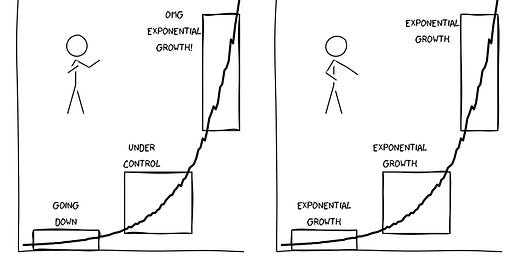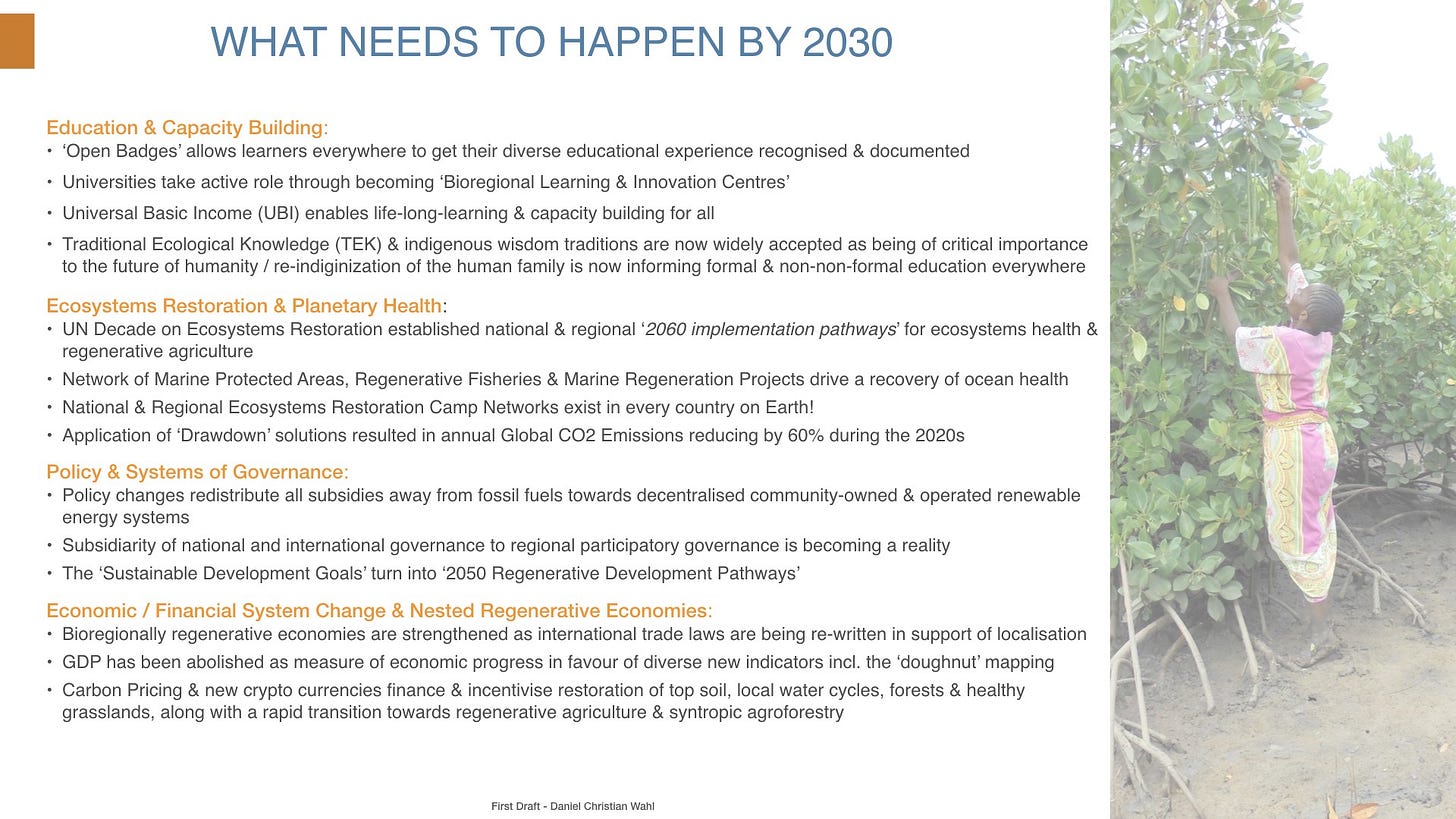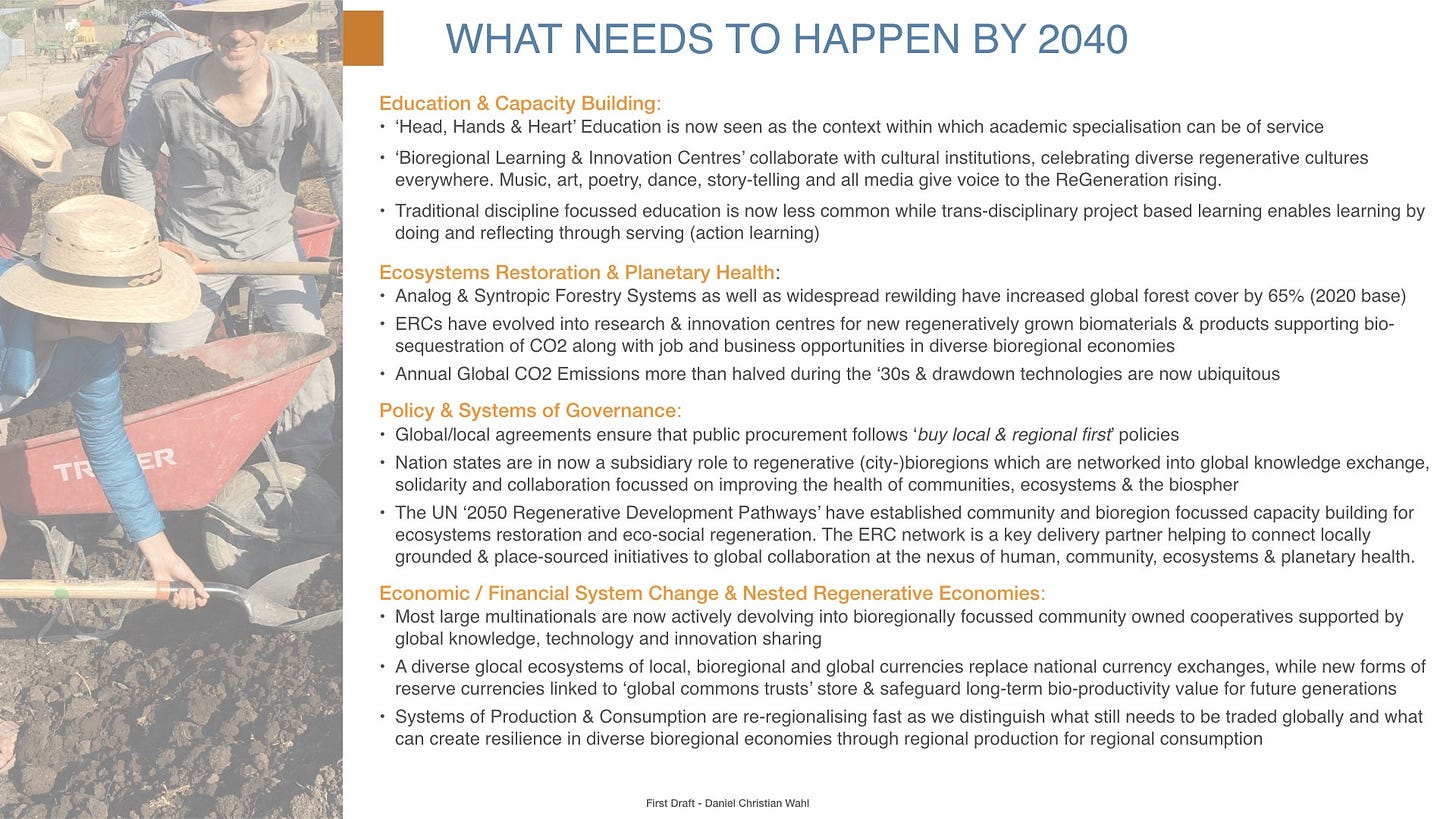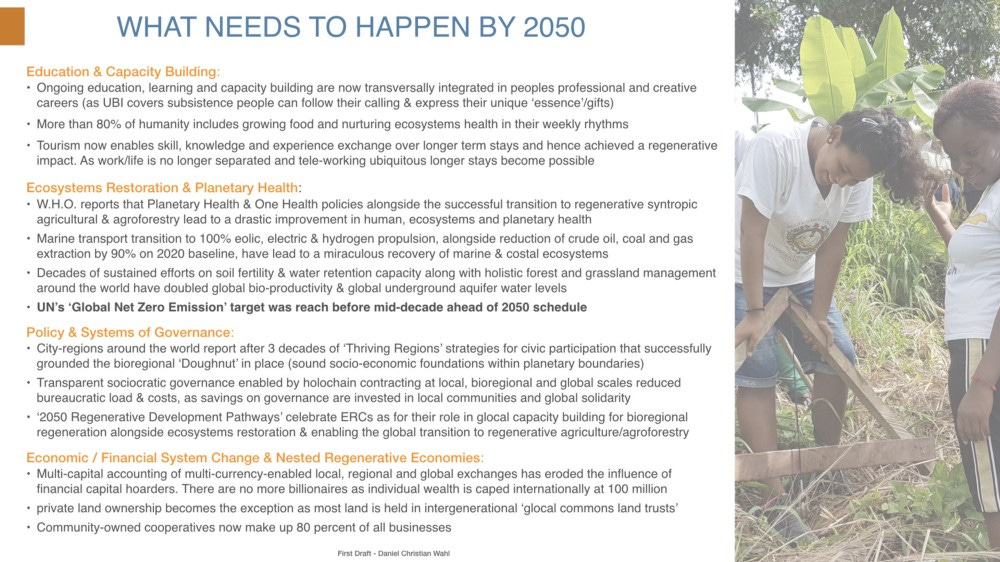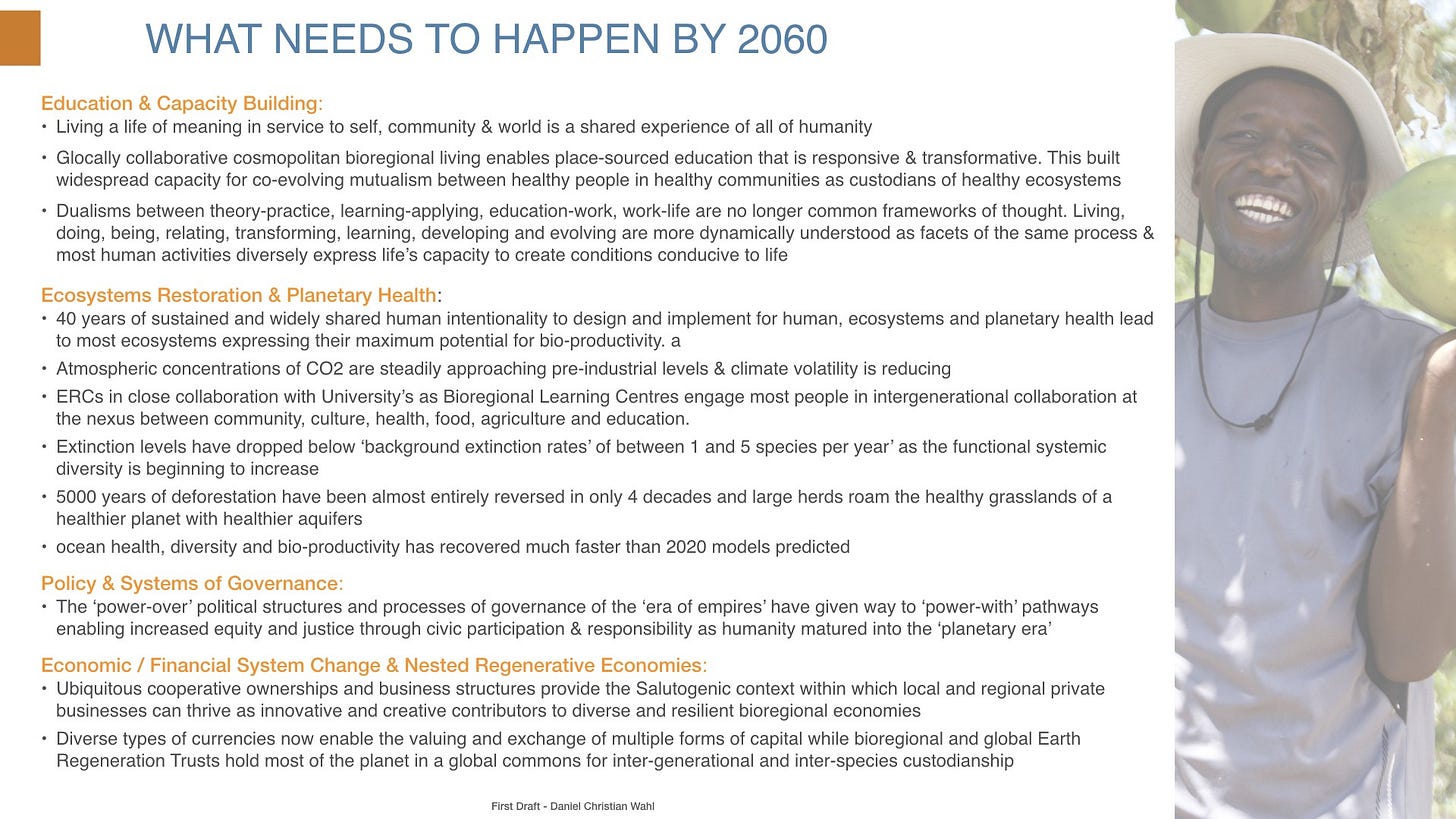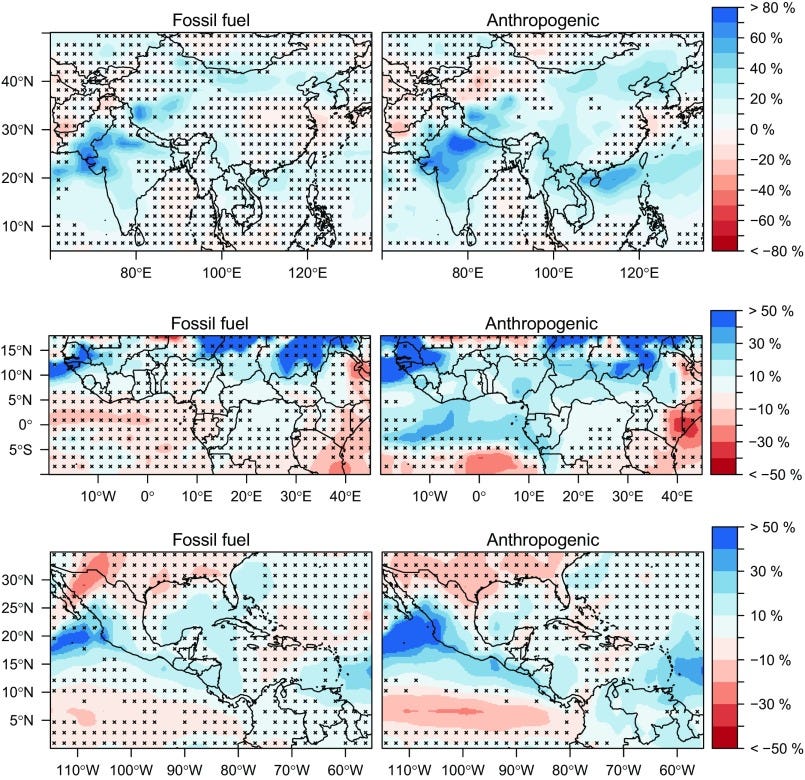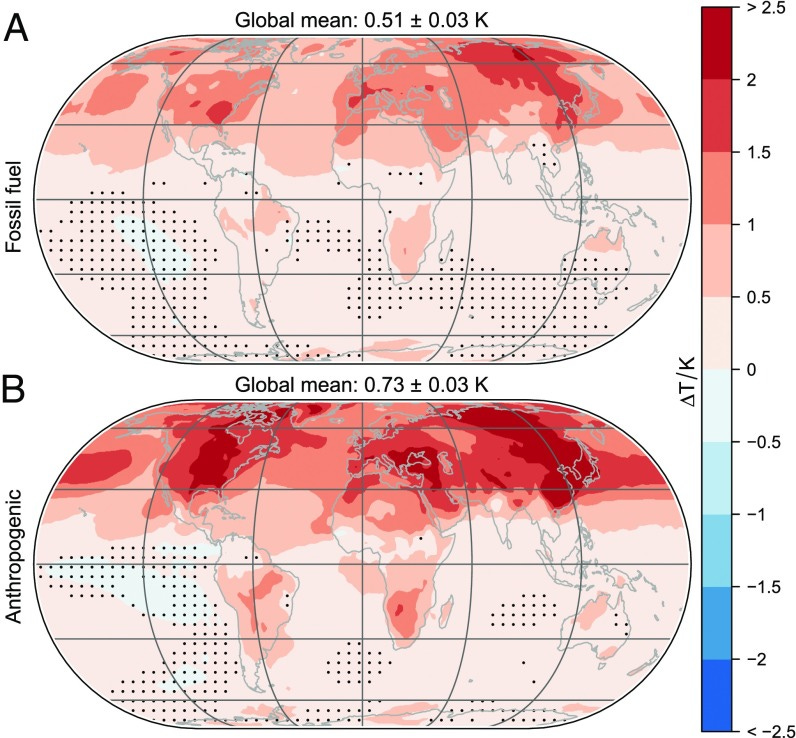The Overview - March 22, 2021
The Overview is a weekly roundup of eclectic content in-between essay newsletters & "Conversations" podcast episodes to scratch your brain's curiosity itch.
Hello Eclectic Spacewalkers,
Wow! So much has happened in the world since our last post. Here is to a new year! I wish that you and your family are safe and healthy wherever you are in the world. :)
Check out the last The Overview themed around “Voting & Democracy in the United States”: HERE
Get our E-Book for free by using ‘substack’: HERE
—
Below are some eclectic links for the week of March 22, 2021.
Enjoy, share, and subscribe!
Table of Contents:
Articles/Essays - Dr. Christian Wahl, Yes Magazine, One Zero, Jonathan Rowson, The New Atlantis Journal, Ensia, Jen Andersson, Boston Review, Logically AI editorial, Noema Magazine
Books - Technopoly (Non-Fiction), The Fifth Season (Fiction)
Documentaries - Persona on HBO Max
Lectures - What is Reality? Frank Wilczek at The Royal Instituion
Papers - Effects of fossil fuel and total anthropogenic emission removal on public health and climate in PNAS
Podcasts - The Rosetta Stone from BBC’s In Our Time
TED Talks - What is Deep Tech? A look at how it could shape the future - Antoine Gourevitch
Twittersphere - Different people interpret data differently (XKCD Comic style)
Videos - Zooming Out from the Earth in 4k
Websites - The Design Studio Center via The Buckminster Fuller Institute
Articles/Essays
A 2061 Timeline: Restoring the Earth (Ecosystems Restoration Camp Symposium) via Dr. Christian Wahl
“I was intrigued by the invitation to speculate in a decade steps time line to 2061 that would highlight some of the things that would have to take place each decade in order for humanity to achieve this monumental task of avoiding the current trajectory towards run-away climate change, cascading ecosystems collapse, worsening mass-extinction and collapse.”
—
What Does An Ecological Civilization Look Like? Via @JeremyRLent & Yes Magazine
“A society based on natural ecology might seem like a far-off utopia—yet communities everywhere are already creating it…
That’s because the multiple problems confronting us right now are symptoms of an even more profound problem: The underlying structure of a global economic and political system that is driving civilization toward a precipice.”
—
How to Design Better Systems in a World Overwhelmed by Complexity via @lifewinning & One Zero
An interview with Keller Easterling, architect, designer, and author of ‘Medium Design’
“It’s difficult to pragmatically negotiate workarounds to or paths out of oppressive systems while still existing within those systems. Design, especially in the service of “doing good,” often ends up putting a Band-Aid over systemic crisis, and speaking abstractly about hacks and workarounds lends itself to accusations of complicity.”
—
Tasting the Pickle: Ten flavours of meta-crisis and the appetite for a new civilisation via @Jonathan_Rowson
“It is difficult to orient ourselves towards meaningful action that is commensurate with our understanding because we are generally unclear about the relationship between different kinds of challenge and what they mean for us. That’s what this essay is about. The world is in a pickle, and, daunting though it is, we need to learn how to taste it.”
—
Introducing “Projects for Renewal”: How to rebuild our culture’s relationship with science and technology via The New Atlantis
A More Political Science
Staying Human
A More Natural Science
On the Modern Project
The Technological Condition
Mind & Human Nature
Beyond Earth
The Good Earth
The Practice of Science
—
What does “wild and pristine” really mean? via @ConserveChange
Wherever in the world you go looking for “wild and pristine spaces,” you encounter evidence of humanity
“Yet, calling the Flats pristine erases Indigenous presence. People have lived there for millennia, and by calling it, and other places like it, “untouched,” we are evoking the concept of terra nullius, land that belongs to nobody.”
—
An Economy of Place: Part 7 — From Extractive to Interconnected Economies via @jenandersson1
Thinking in Questions | Potential not Problems | Think Like An Island
“Whether you are a city-maker, a village-maker, a community-convener, a destination-doula, a regional economist, an estate owner or a fractal-farmer, these ideas are for you.'“
—
The Value of Truth via Michael Patrick Lynch - Director of @UCHI_UConn
“At a time of anxiety about fake news and conspiracy theories, philosophy can contribute to our most urgent cultural and political questions about how we come to believe what we think we know.”
—
Positivist Thinking via @LogicallyAI @lastpositivist
“Logical positivism hinged on what its adherents called the “verification principle” – the idea that only two sorts of statements are meaningful: statements that can be verified empirically through the senses, and statements that are tautologies (true by definition)…
As a theory of meaning, verificationism is, to my mind, pretty obviously inadequate – the hard analytic/synthetic distinction it assumes doesn’t work, and it renders lots of non-nonsensical things as nonsense. But that doesn’t mean that the verification principle isn’t also sometimes a useful tool, which we can use when analyzing certain statements (just because a screwdriver can’t build a house by itself, doesn’t mean it isn’t worth including in your toolbox)…
Conspiracy, in other words, goes wrong when it yields credulity – the tools we need are ones that help us break credulity’s spell.”
—
A View Of The Future Of Our Data via @NoemaMag
Welcome to the era of data coalitions.
“The data coalition era is neither a techno-utopia nor a Luddite fever-dream. It is simply a new political-economic settlement with a more reasonable synthesis of competing interests, better incentives and a less alarming concentration of power in Silicon Valley.”
Books
Technopoly by Neil Postman (Non-Fiction)
This is an incredible book. We loved it so much that our next essay will be on the book title’s subject - Technopoly. Technopoly is the surrender of culture to technology. Neil Postman’s lucid prose and well crafted research make this tome a classic for technological critique.
“For it is inescapable that every culture must negotiate with technology, wherther it does so intelligently or not.”
Postman not only spells out the problem, but also gives the reader a framework to process, understand, and ultimately - do something to take back our culture from the clutches of technology’s own wants, desires, and dreams.
“No one is an expert in how to live a life. I can, however, offer a Talmudic-like principle that seems to me an effective guide for those who wish to defend themselves against the worst effects of the American Technoploy. It is this: You must become a loving resistance fighter.”
—
The Fifth Season by N.K. Jemisin (Fiction)
What a great new sci-fi/fantasy trilogy! The first book, which is the first we have read of Jemisin’s works, completely awed us with its original concepts, relatable characters, and superb narratives. The dialogues are honestly some of the best conversational writing we have encountered.
The book begins with this teasing and foreshadowing line: "Let’s start with the end of the world, why don’t we? Get it over with and move on to more interesting things.”
It only got better after that! No wonder this work won the 2016 Hugo Award winner for best Sci-Fi… “Every age must come to an end.”
Documentary
Persona - HBO MAX
This documentary will make you never see personality tests (like Myer’s Briggs & The Big 5) in the same way ever again. A fantastic documentary that pulls apart the good-intentioned beginnings that have now been turned into a dystopian reality of job seekers being systematically screened out of the workforce due to pseudo-science “tests of personality.” Could have been more about what solutions are available, but if awareness was the point of the film - then it passed with flying colors.
Lecture
What is Reality? The Royal Institution with Frank Wilczek
There’s Plenty of Space
There’s Plenty of Time
There Are Very Few Ingredients
There Are Very Few Laws
There’s Plenty of Matter and Energy
Cosmic History is an Open Book
Complexity Emerges
There’s Plenty More to See
Mysteries Remain
Complementarity is Mind-Expanding
Paper
Effects of fossil fuel and total anthropogenic emission removal on public health and climate - J. Lelieveld, K Klingmüller, A Pozzer, R T Burnett, A Haines, V Ramanathan
Abstract
Anthropogenic greenhouse gases and aerosols are associated with climate change and human health risks. We used a global model to estimate the climate and public health outcomes attributable to fossil fuel use, indicating the potential benefits of a phaseout. We show that it can avoid an excess mortality rate of 3.61 (2.96-4.21) million per year from outdoor air pollution worldwide. This could be up to 5.55 (4.52-6.52) million per year by additionally controlling nonfossil anthropogenic sources. Globally, fossil-fuel-related emissions account for about 65% of the excess mortality, and 70% of the climate cooling by anthropogenic aerosols. The chemical influence of air pollution on aeolian dust contributes to the aerosol cooling. Because aerosols affect the hydrologic cycle, removing the anthropogenic emissions in the model increases rainfall by 10-70% over densely populated regions in India and 10-30% over northern China, and by 10-40% over Central America, West Africa, and the drought-prone Sahel, thus contributing to water and food security. Since aerosols mask the anthropogenic rise in global temperature, removing fossil-fuel-generated particles liberates 0.51(±0.03) °C and all pollution particles 0.73(±0.03) °C warming, reaching around 2 °C over North America and Northeast Asia. The steep temperature increase from removing aerosols can be moderated to about 0.36(±0.06) °C globally by the simultaneous reduction of tropospheric ozone and methane. We conclude that a rapid phaseout of fossil-fuel-related emissions and major reductions of other anthropogenic sources are needed to save millions of lives, restore aerosol-perturbed rainfall patterns, and limit global warming to 2 °C.
Podcast
The Rosetta Stone - BBC’s IN OUR TIME
Interesting discussion on the history of the rosetta stone. It is one of the most famous museum objects of all time. A mix of Greek, Demotic, and Hieroglyphs all on one giant, but incomplete, granite block. Found by Napolean’s soldiers, it took 20 years for Champollion to finally decipher the inscriptions. Now we marvel at what we have found, but more importantly - the things we may have lost since then.
TED Talk
What is Deep Tech? A look at how it could shape the future - Antoine Gourevitch
Gourévitch says: "deep tech is changing what was once considered impossible into something actively possible, today." This could have a lasting impact on fields as diverse and different as biology and energy, as it merges design thinking with good old science & engineering.
Twittersphere
Chef’s kiss to the XKCD style comic of how different people interpret data differently via @vb_jens
Video
Zooming out from Earth (4K) - Universe Dope
This video zooms out from the location of ESO’s headquarters out to beyond our Milky Way galaxy. Strap in for a awe-filled journey through the stars!
Websites
Design Science Studio via Buckminster Fuller Institute
What is Design Science?
Design Science is a strategy for global systems change through design thinking strategies rooted in ecological principles. It employs scientific observations as a foundation for intentional and intelligent design, often borrowing from phenomena in the natural world to create whole systems solutions to the world’s problems. R. Buckminster Fuller used design science to create geodesic domes, calling upon the structural uniformity of naturally occurring elements such as snowflakes and seed pods.
"I did not set out to design a geodesic dome," Fuller once said, "I set out to discover the principles operative in the Universe.”
The Design Science Decade uses these principles as a framework to reorient the course of the next ten years to create a world that works for 100% of humanity.What is the Design Science Decade?
The clutch is in, will we shift up or down? We are in a critical moment, as Fuller says, it’s Utopia or Oblivion.
Inspired by Fuller’s original Design Science Decade, the BFI has reimagined the potential of what is needed to build a new, regenerative economy that works for 100% of life. Using Fuller’s original 5 two-year phases as a catalyst and incorporating what humanity is now more aware of in regards to social justice, the BFI Staff has begun to envision the future of our society evolving through five phases. These phases are meant to inspire a shift in how we anticipate and create a future, not be a prescriptive model, but rather a provocation. Please add to them and make them yours through your art. We will evolve them together as we go.
This is the most concentrated transition moment humanity has yet to experience. In the course of ten years we will build a new economy that works for 100% of life. We envision the future of our society evolving through five phases.2020-2021: RECONCILIATION and Commitment
Here we lay down the deep groundwork for the decade, remembering the living systems understanding of the world that many indigenous cultures have practiced for millennia. We start to address the root causes of our interconnected crises. We begin to uphold the oppressed people and recognize them as a resource for resilience. We make wild commitments, without knowing the path to get there.
2022-2023: RESTORATION and Capital-transfer
We will do mass tree planting that is already being committed to in this first phase. We will use this planting to also detoxify the earth through myco- and bioremediation. We will ban pesticides, first on public lands and then phase in a ban on crops. At the same time as massive planting, massive amounts of money in family wealth will be passed to the next generation and these millennials will divest from exploitation and invest in regeneration. Billionaires are going out of style, they are giving away enough to stay a millionaire.
2024-2025: RESILIENCE and Coming-together
As extreme weather and other shocks to the system continue, we will have the opportunity to upgrade our infrastructure. Our short-term reactions will build long-term resilience. Global temperatures won’t peak until 2053 at 1.526 degrees according to the latest Drawdown forecast and in the meantime we will have increasing fires, floods, storms and droughts that will require global cooperation for mitigation. This is not a time for selfishness, we will build a path to a more resilient world, through our emergency response.
2026-2027: REGENERATION and Celebration
This is the anticipated phase when all our work will bear fruit in a wave of regenerative good news. We will see indications of life rebounding all around our living Spaceship Earth. The latency of our decades of regenerative actions will catch up in a wave of healing, cooling, and grounding. Life will re-emerge and we will dance!
2028-2029: REJOICING and the Circularity
This will be the point that marks the end of the era of exploitation --we will close all the loops. No more mining will be needed, all resources will be either recovered or regenerative. We will grow in a way that regenerates ecosystems and communities. We will mine the landfills and then close them down.
That’s it for this week. Until next time - Ad Astra!
More on Eclectic Spacewalk:
Subscribe to Substack Newsletter
Listen to all podcasts on Anchor
Follow Eclectic Spacewalk on Twitter

